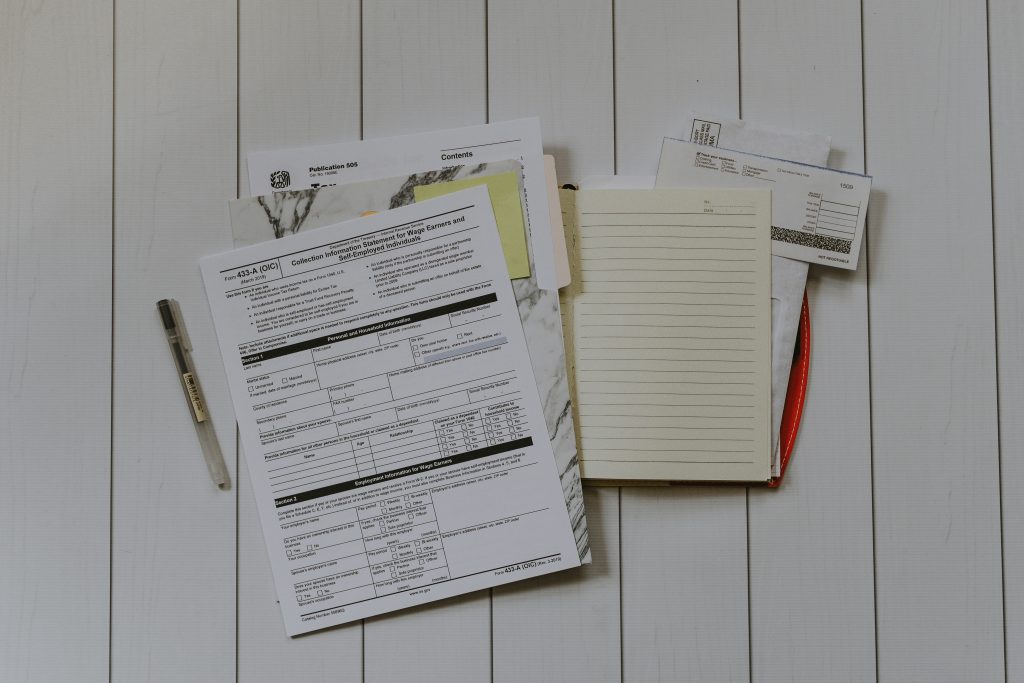By: Claudio Simione, Staff Writer
To many, but especially for tax accountants, April is the most grueling time of the year. At the time of writing this article, the filing deadline for federal tax returns is looming on April 15.1 While nobody particularly enjoys doing their tax-returns for the Internal Revenue Service (IRS), it is safe to assume that an IRS audit would be even more unenjoyable. Therefore, taxpayers must be especially diligent when filing their respective returns.
Many tax law attorneys speculate that the best way to reduce the chance of an unpleasant interaction with the IRS is to ensure tax returns are consistent with any information returns submitted to the IRS about the individual, such as a Form 1040, 1099, or W-2.2 When one of these forms is incorrect, the taxpayer has three main choices. The first is to report consistently with the incorrect information on the return.3 The second is to attach an explanation for why the information on the return is incorrect to the return itself.4 The final choice is to make the correct return and then keep all records, because if the discrepancy is large enough the IRS will send a letter, prodding for more information.5
Historically, low-income levels are the most likely to get audited.6 Congress is very concerned that low-income taxpayers are cheating the system by improperly claiming tax credits such as the EITC (Earned Income Tax Credit).7 However, high incomes are also very vulnerable to get audited. Higher incomes get reviewed more by IRS officials because their errors cost the government a lot more lost revenue.8 For example, some large corporations are under constant examination, and very-high-income taxpayers are more likely to participate in the type of “tax-shelter” transactions that the IRS targets.9 Additionally, self-employed taxpayers who report income on Schedule C may be more likely to be selected for a specialized audit.10 Those that are self-employed can take the standard deduction on the Form 1040 and still deduct business expenses on Schedule C.11 This is due to the fact that, while the IRS computer matching programs do a good job at spotting potential unreported income, they cannot spot erroneous deductions.12
You may be asking yourself: what is the best way to respond to an audit request filed from the IRS? Almost always the IRS is looking into a particular issue or set of issues, so individuals must be sure to know what the IRS is concerned about.13 If the IRS needs more information, allow them to ask for it. Individuals should avoid letting the IRS come to their homes or businesses, so being cooperative and offering to bring information to them is generally the best way to respond.14 However, if individuals are concerned about any criminal prosecution, then tax attorneys suggest taking the opposite approach, and not volunteer information you may think could help convict you of a crime.15
Proper filing and avoiding mistakes in tax returns save individuals money, effort, and potential conflicts with the IRS.
- See, https://www.forbes.com/sites/brucebrumberg/2025/03/31/how-the-irs-decides-to-audit-you-a-tax-expert-explains/ ↩︎
- See, https://www.forbes.com/sites/brucebrumberg/2025/03/31/how-the-irs-decides-to-audit-you-a-tax-expert-explains/ ↩︎
- See, https://www.forbes.com/sites/brucebrumberg/2025/03/31/how-the-irs-decides-to-audit-you-a-tax-expert-explains/ ↩︎
- See, https://www.forbes.com/sites/brucebrumberg/2025/03/31/how-the-irs-decides-to-audit-you-a-tax-expert-explains/ ↩︎
- See, https://www.forbes.com/sites/brucebrumberg/2025/03/31/how-the-irs-decides-to-audit-you-a-tax-expert-explains/ ↩︎
- See, https://www.forbes.com/sites/brucebrumberg/2025/03/31/how-the-irs-decides-to-audit-you-a-tax-expert-explains/ ↩︎
- See, https://www.forbes.com/sites/brucebrumberg/2025/03/31/how-the-irs-decides-to-audit-you-a-tax-expert-explains/ ↩︎
- See, https://www.forbes.com/sites/brucebrumberg/2025/03/31/how-the-irs-decides-to-audit-you-a-tax-expert-explains/ ↩︎
- See, https://www.forbes.com/sites/brucebrumberg/2025/03/31/how-the-irs-decides-to-audit-you-a-tax-expert-explains/ ↩︎
- See, https://www.forbes.com/sites/brucebrumberg/2025/03/31/how-the-irs-decides-to-audit-you-a-tax-expert-explains/ ↩︎
- See, https://www.forbes.com/sites/brucebrumberg/2025/03/31/how-the-irs-decides-to-audit-you-a-tax-expert-explains/ ↩︎
- See, https://www.forbes.com/sites/brucebrumberg/2025/03/31/how-the-irs-decides-to-audit-you-a-tax-expert-explains/ ↩︎
- See, https://www.forbes.com/sites/brucebrumberg/2025/03/31/how-the-irs-decides-to-audit-you-a-tax-expert-explains/ ↩︎
- See, https://www.forbes.com/sites/brucebrumberg/2025/03/31/how-the-irs-decides-to-audit-you-a-tax-expert-explains/ ↩︎
- See, https://www.forbes.com/sites/brucebrumberg/2025/03/31/how-the-irs-decides-to-audit-you-a-tax-expert-explains/ ↩︎
